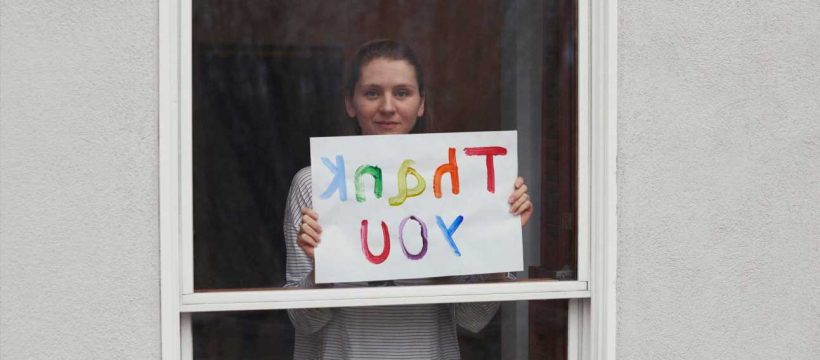A QUARTER of the time Brits say thank you, they don’t really mean it, a new study has revealed.
A poll of 2,000 British adults have found they will typically express their gratitude 207 times a month – but 54 of those thank yous are uttered just for the sake of it.
Another finding of the poll – which is perhaps a result of those phoney thank yous – was that a quarter of those polled believe the art of genuinely thanking someone is “dying out”.
In spite of this, an insincere thank you is still considered better than nothing, with a third of participants admitting they feel “upset” if they don’t get acknowledged for their actions.
Furthermore, 63 per cent believe good manners are important – and 51 per cent even suggest having good manners makes you a better person.
The survey was commissioned by Virgin Media 02, which has teamed up with etiquette expert William Hanson ahead of ‘Thank You Day’ on Sunday July 4, to create a guide on how to show gratitude.
William Hanson said: “Brits have a complicated relationship with giving thanks.
“On the one hand, we are quite buttoned-down, and it’s not ‘the done thing’ to show too much emotion.
“On the other, many of us take pride in our manners – and saying please and thank you is critical to that.”
William Hanson’s top tips for showing gratitude:
1. Effort and gratitude go hand in hand.
Want to thank someone for a delicious dinner or a lovingly prepared lunch?
It’s about what you say and not how you say it.
Gratitude is wonderful in all its forms – take the time to craft the message and really think about what you want to say.
2. Emotion may not come naturally to us Brits – although we're getting better, thank heavens.
If you're ever unsure of the exact wording of your thanks, my advice is not to overthink it.
Just write or say what comes naturally.
Draft it first, if needs be.
Something sincere, from the heart, will shine more than an overly moderated message.
3. When you aren't able to write to say thank you, pick up the telephone or dial them on video chat (or do both and send something written the next day!).
We have so many ways to connect with people today, so there's really no excuse not to.
You can use the fantastic technology that’s available at our fingertips to show them that you’re wearing the new jumper they got you, or how beautiful the flowers they sent you look in a vase.
4. Feel free to use various ways to express your gratitude: a quick phone call on the day you get the present, followed by a letter a few days later.
Remember – you can never say thank you enough.
Hanson said it was clear we need to focus not just on saying ‘thank you’, but also on making sure its a genuine expression of our gratitude.
According to the study’s results, nearly three in 10 of Brits say a text or a WhatsApp message is their preferred method for expressing thanks.
One in four will go as far as sending a gift, like a bouquet of flowers, to show their appreciation to someone.
Just 12 per cent of us are prone to using social media to give a shout out to someone for something they are grateful for.
More than half – 55 per cent – of Brits believe they have become “more grateful” during the pandemic.
Some touted health benefits, with four in 10 feeling that saying thank you helps those receiving it with their mental health and wellbeing, with 90 per cent saying it is good for their own health.
William Hanson added: “This Thank You Day, take the time to thank three people in your lives to show them how much they mean to you.
“My advice to people who want to say thanks to someone that they can’t be with in person, is to do the next best thing and do it via video call, on the phone, or even send a voice note.
"Hearing a voice is not only more personal, but you will naturally feel more connected to each other and what better time to do this than on the national day of thanks.”
A spokesperson for Virgin Media O2 said “It has been a tough time for many of us, and the simple act of saying thank you to someone, whether you say it face-to-face, via a video call or voice note, can make someone feel valued and special”.
The network is helping 400 charities and community groups to hold events this Sunday, through its Together Fund.
Source: Read Full Article






